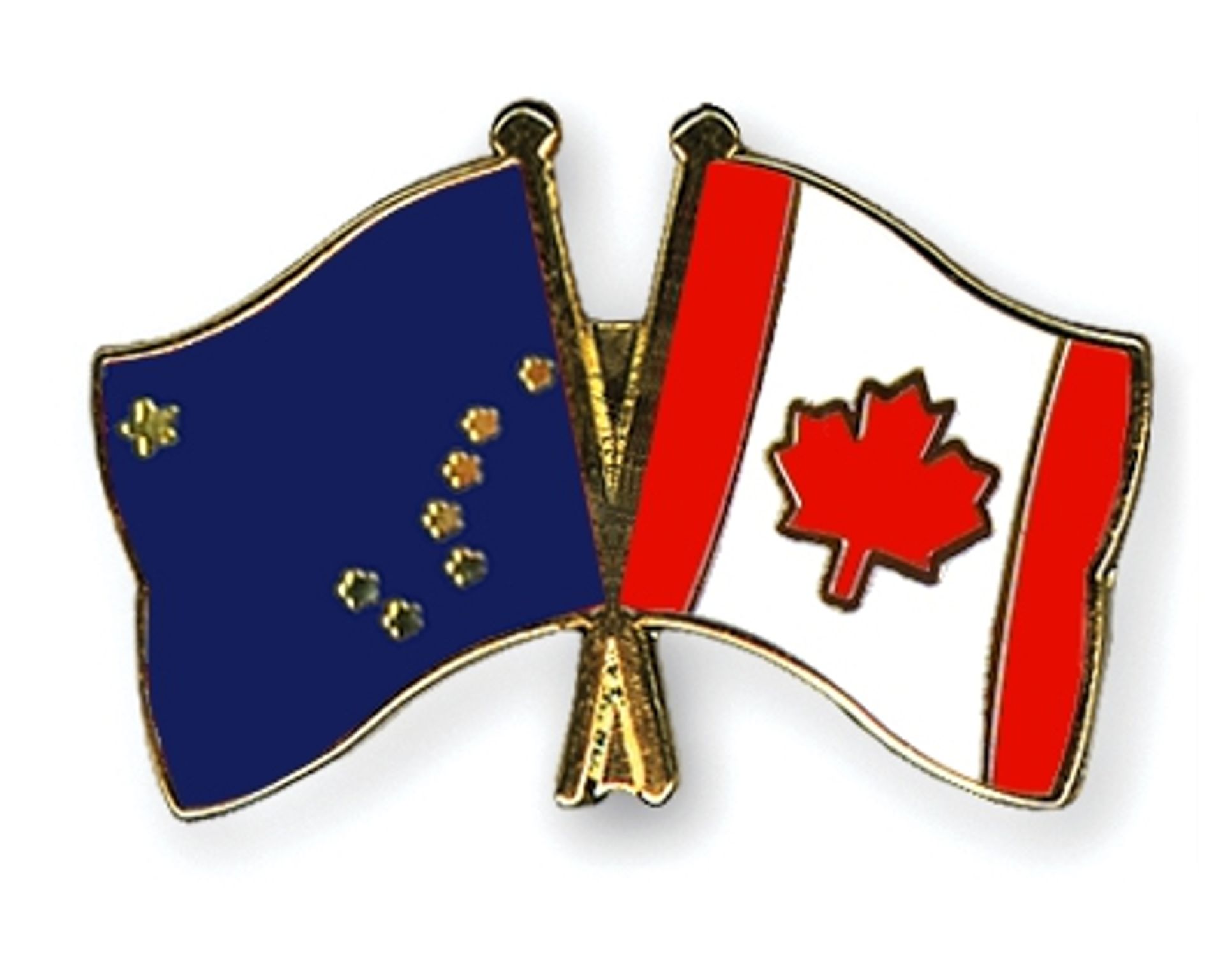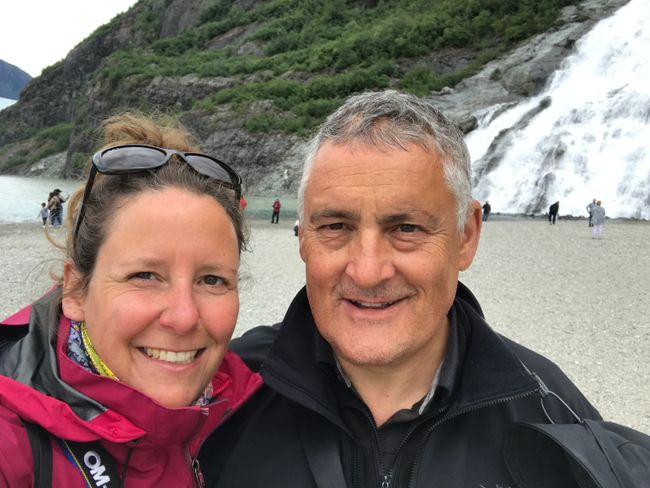Seattle, a story of failures and sin (15.-20.10.18)
Publicado: 17.10.2018
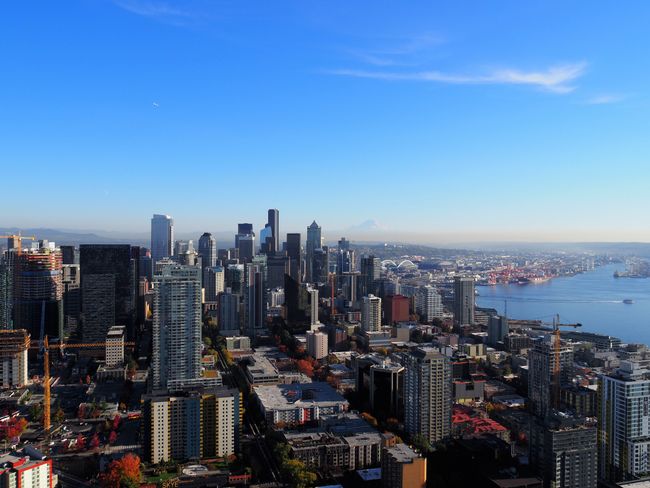
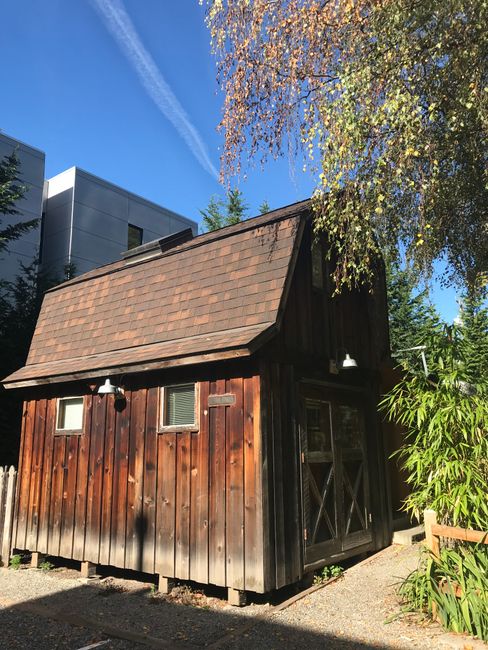
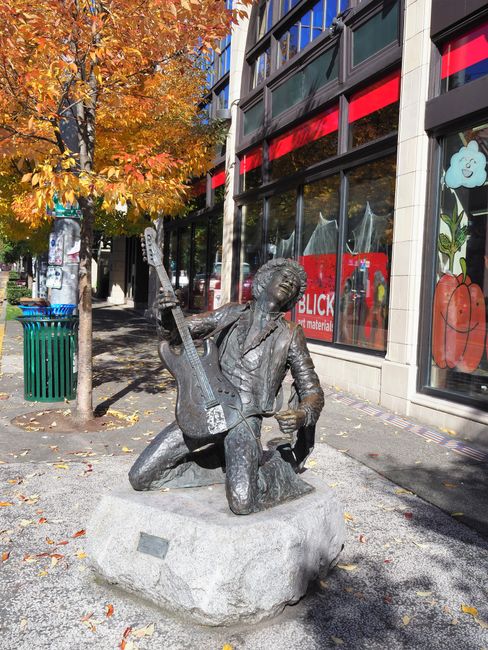
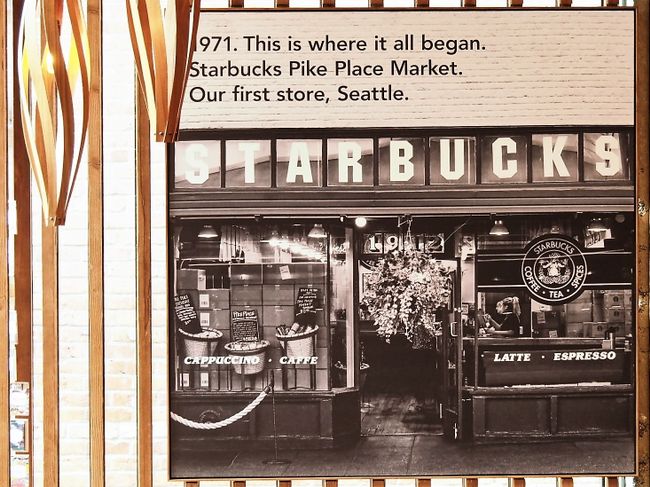
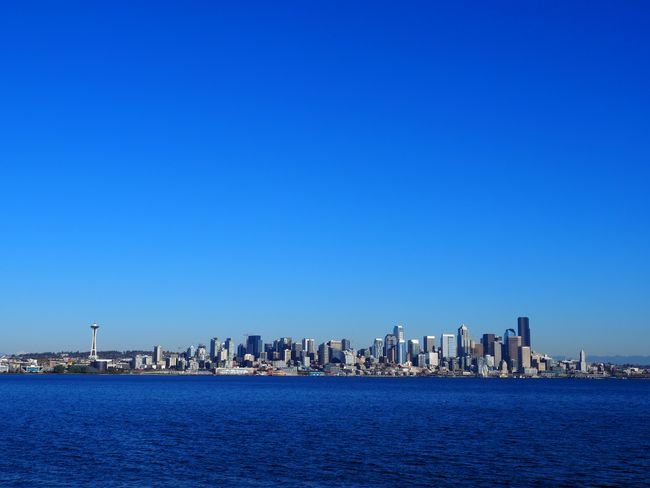
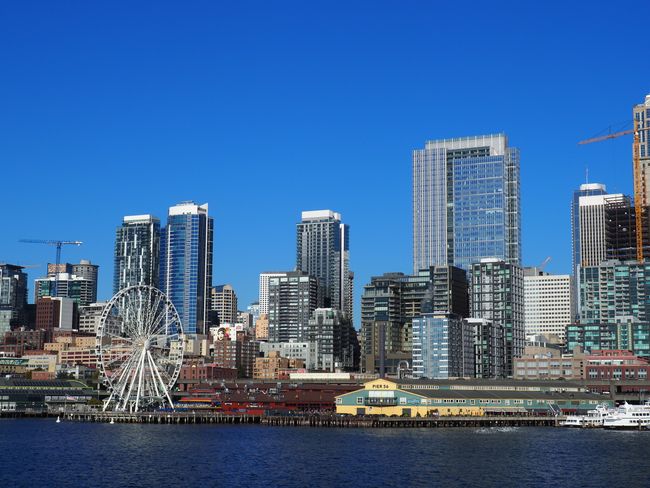
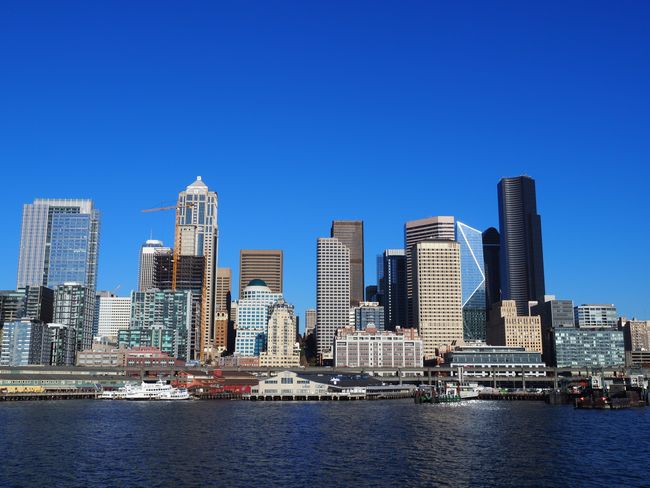
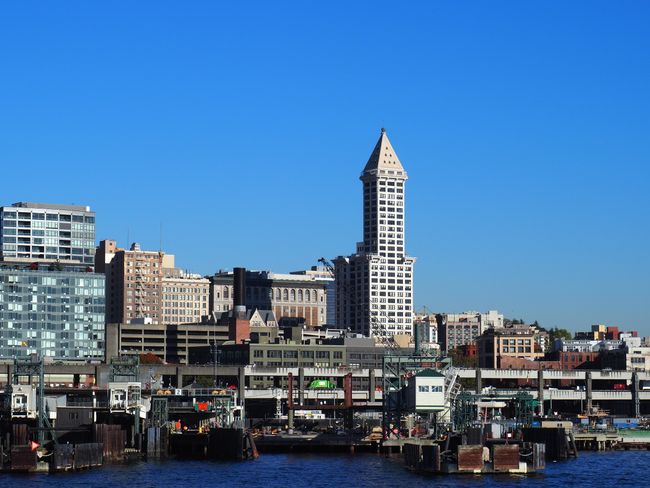
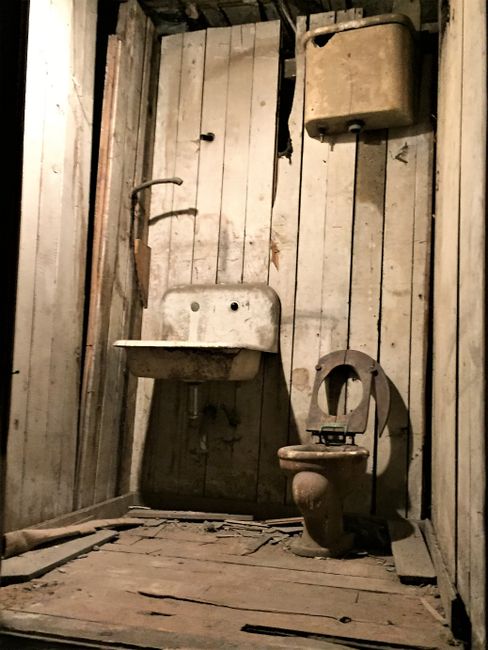
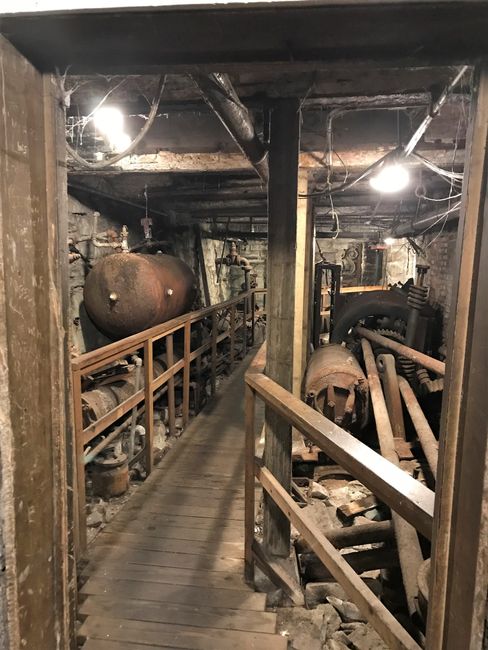
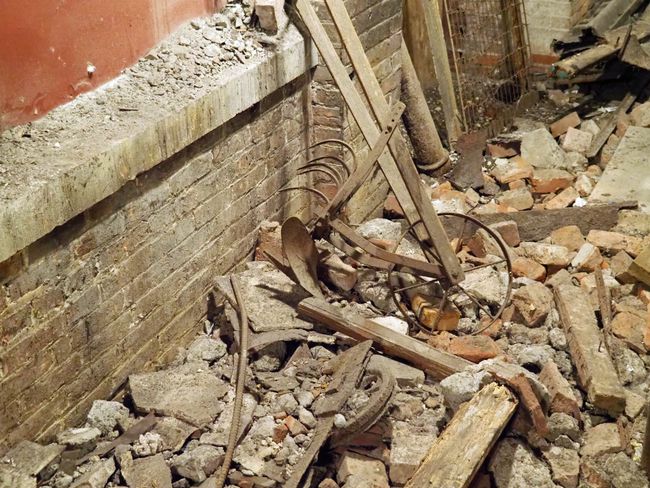
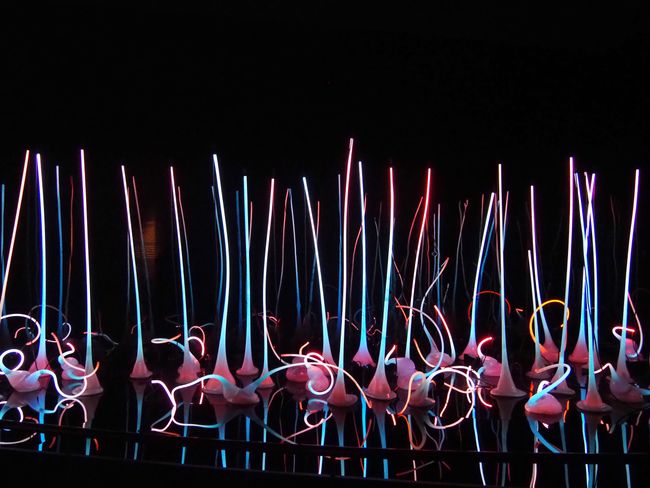
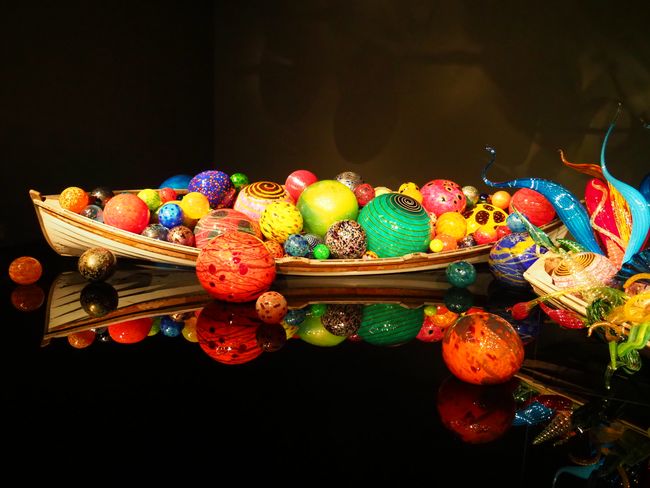
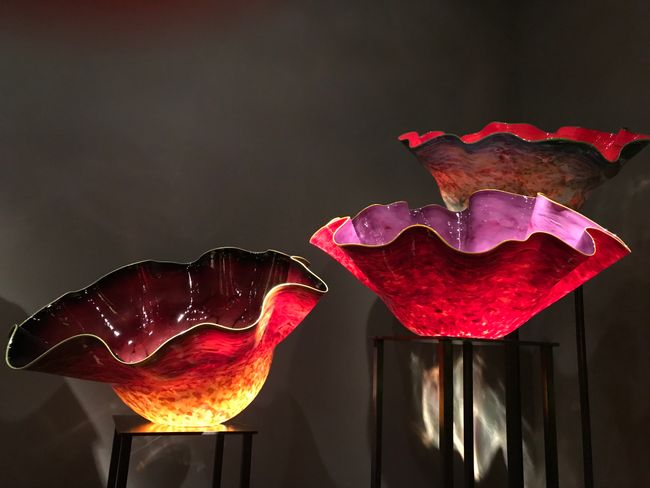
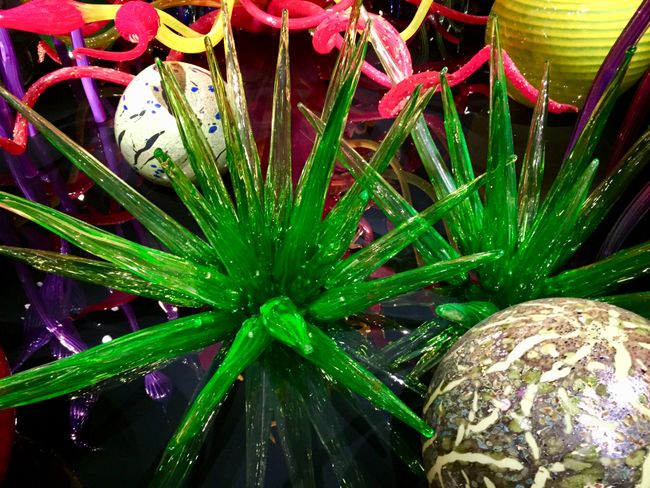
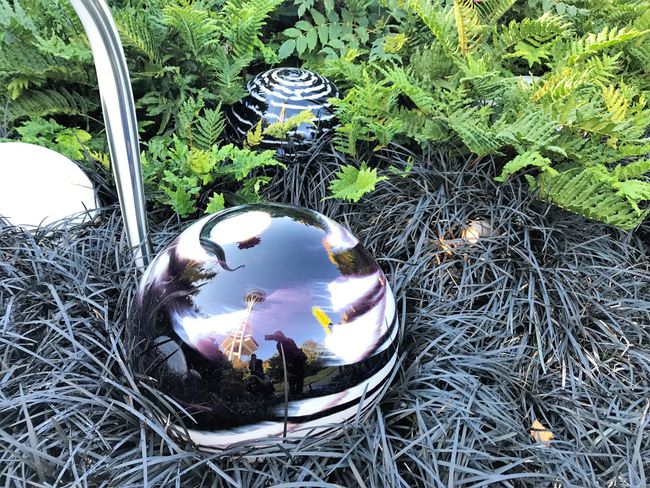
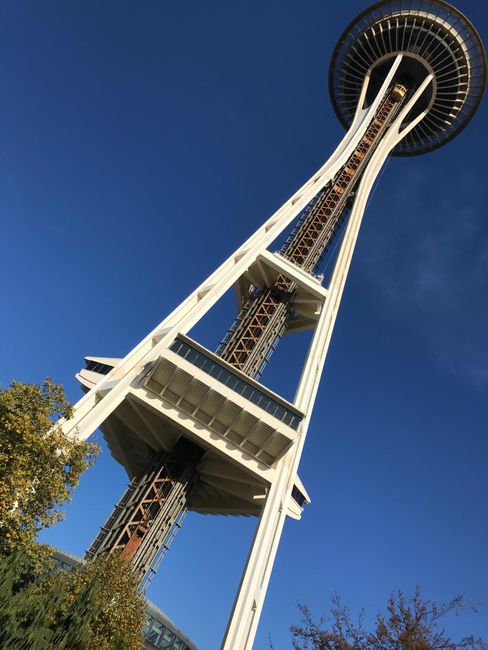
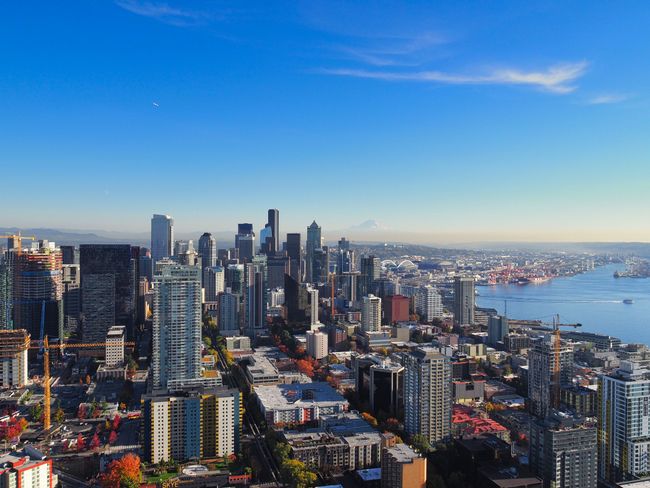
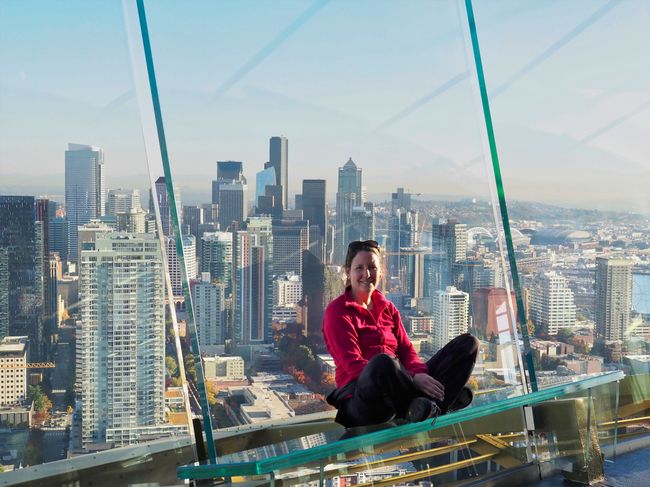
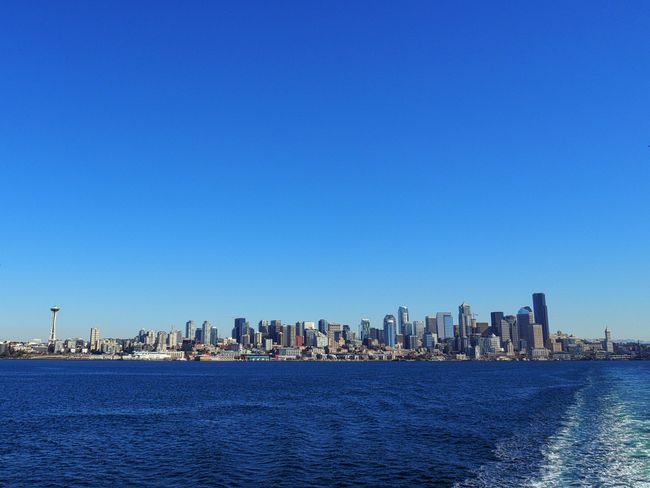
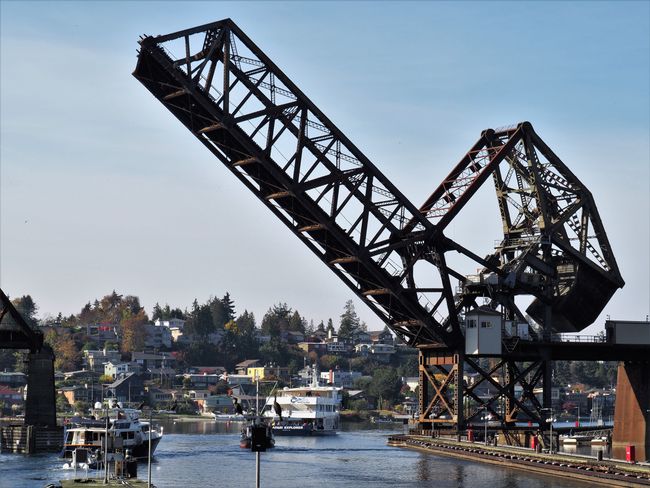
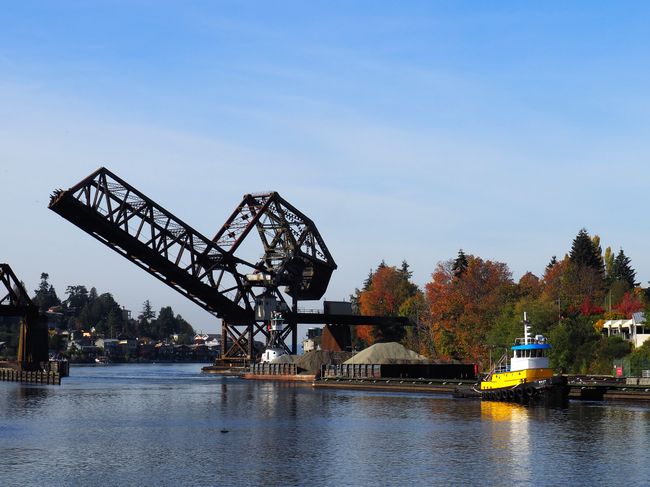
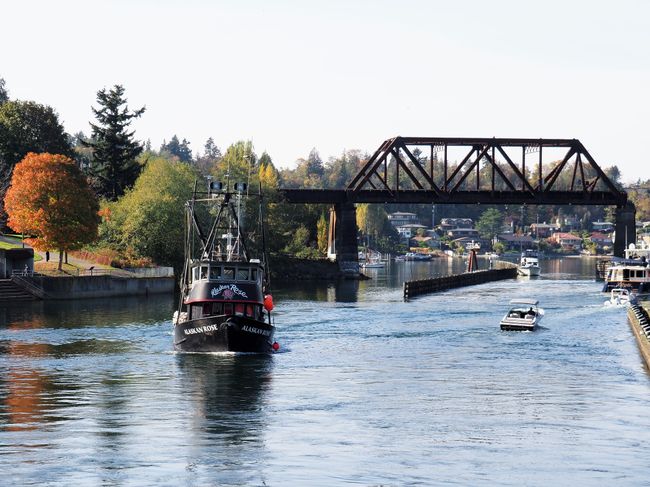
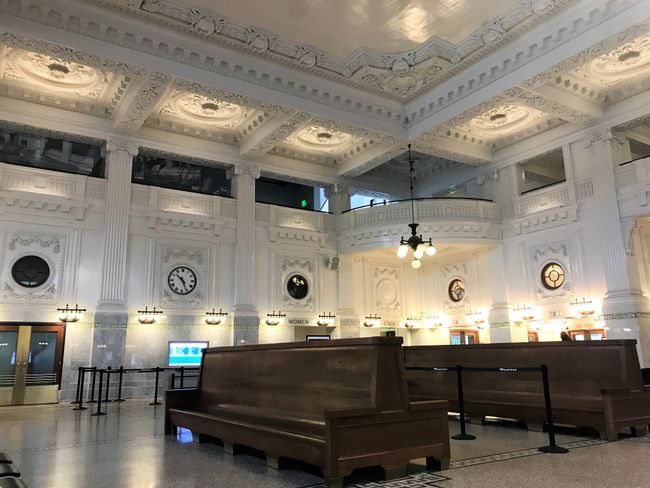
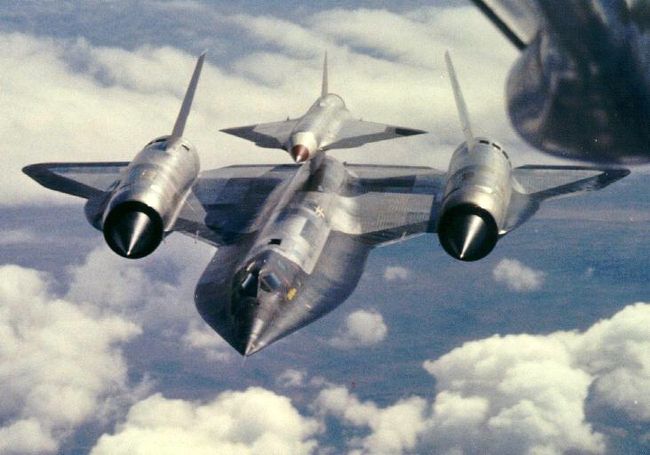
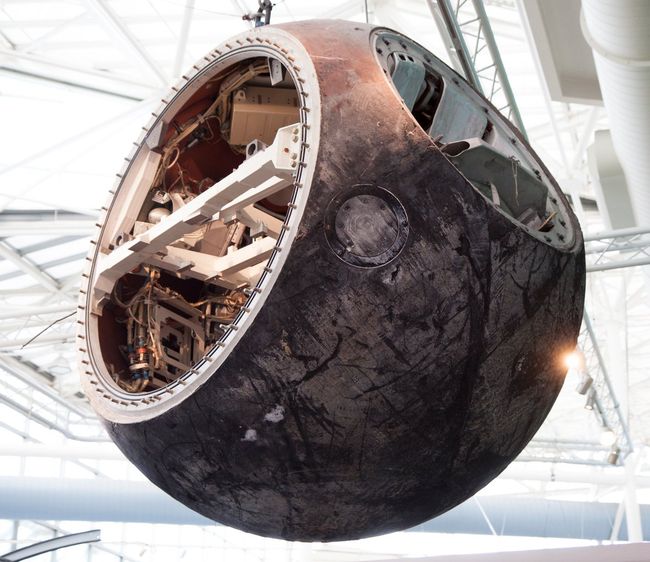
Subscríbete ao Newsletter
The abundance of greenery in and around Seattle justifies the nickname 'Emerald City'. At the same time, it is also a response to the 'Evergreen State' Washington. In 1851, the Denny Clan from Illinois sent scout David Thomas Denny to the Duwamish river valley, and he wrote to his brother Arthur, 'We have examined the valley of the Duwamish river and find it a fine country. There is plenty of room for one thousand settlers. Come at once'.
Our first Airbnb turns out to be a hit. The former shed on E John St and 11th Av is small and cozy. The location is perfect for exploring the city. After our arrival, we visit the memorial for a legend from Seattle, Jimi Hendrix, who coaxed completely new sounds from his Fender Stratocaster, rolled around on the floor with it, made the strings vibrate with his teeth and tongue, and set it on fire. Pure intensity. Eric Clapton, Jeff Beck, Jimmy Page, Pete Townshend, and Keith Richards were speechless when they first heard Hendrix. He died at the age of 27 in London. Wild stories surround his death. From the memorial on Broadway, we head down E Pine St to Pike Place Public Market. After a round on the market, we buy fruits and vegetables for the next few days.
A cool picture of Seattle's skyline should be possible from the Puget Sound. Presumably, you can also see the mountains of the Olympic Range to the west and the Cascades to the east behind the city. So we look for a smart way to get on the water. On our way to the oceanfront, we enjoy a coffee at Victrola on Tuesday, a local coffee roaster. As a coffee lover, it is a must to know what's going on in coffee-crazy Seattle, the birthplace of Starbucks. Our goal is Pier 52 to take the ferry to Bainbridge Island. This way, we can combine the useful with the pleasant. The round trip should give us plenty of opportunity to photograph the city and see Mt Rainier, which dominates the horizon south of Seattle, if the visibility is good. On the island, we walk to Winslow. A real 'holiday village atmosphere'. At Bruciato, we enjoy a burrata with delicata squash and arugula topped with a pumpkin coulis, amaretto breadcrumbs, and balsamic vinegar. The chef tells me that he grilled the squash in the pizza wood-fired oven. After returning to the city, we walk to Pioneer Square to take part in the Underground Tour, a humorous guided tour with funny anecdotes about the city's origin and history. We end the evening at the Elysian Brewing Company with a 'Rhubarbarella' (Rhubarb Brett Pale Ale) and a 'Mens Room Original Red Ale'.
After Arthur Denny followed his brother's call to Alki Point on the Puget Sound in 1851, the Denny Clan had to deal with the settlers and the Indian tribes living around the Puget Sound whom the brother did not mention in his letter. The Elliot Bay had what a city in the 1850s needed to participate in the trade streams, a deep seaport. In honor of the Duwamish Chief 'Sealth', who protected the settlers from attacks by other Indians and was able to unite 5 tribes behind him, the emerging city was named Seattle. The abundant wood and the first steam-powered sawmill were the drivers for the first growth spurt of the young city.
No sewage system was built during the city's construction. Since it often rains in Seattle and there were no drains, the streets were more like mud trenches that could cost the lives of children and dogs. The water supply was privately organized, houses and sidewalks were made of wood, and sawdust was used on the 'streets' to fill the potholes and bind the deep mud that often fell during rain. Lumberjacks and sailors were the ideal audience for the incredible number of gaming parlors, brothels, bars, and dives that made up the sinful part of the city throughout the years.
In this unbearable situation, T. Crapper brought an invention from England to Seattle, flush toilets. Despite the lack of sewage systems, the indoor flush toilets quickly gained popularity in the upper class. The construction of a sewage system took a long time and was poorly executed. The pipes had far too little slope, and during high tide, the sewage was pushed back through the toilets, turning the toilets into cesspool geysers (Crapper's toilets were 'crap').
On June 6, 1889, John E. Black had an 'accident' while cooking glue. The container with the liquid glue tipped over into the flames and onto the floor. The abundance of wood, sawdust, the lack of pipelines, and low water pressure made it impossible for the fire department to intervene adequately. Approximately 30 blocks, practically the entire business district, burned down.
After the quick decision to rebuild, it was, of course, the perfect opportunity to correct the mistakes. The city fathers decreed that buildings should be built with bricks and metal, and the ground of the city should be raised by about 2.5 meters (higher than the water level during high tide) to overcome the mud streets and the shit fountains in the houses. Construction of the houses began immediately, but the city needed much longer for the retaining walls and raised streets. The bases of the houses stood partially 2.5 meters below the street level for years. Until the gap was closed with a sidewalk, shopping arcades and house entrances were accessed by ladders or stairs. These spaces, which now lie in the underground of Seattle, are explored on the Underground Tour.
On Wednesday, we walk along Broadway, across Marion to St. James Cathedral. The Mass has just begun, the organist gives his all, and the church trembles with the grand sounds from the pipes of the large organ. We continue down towards the International District and Chinatown. As hunger slowly sets in, there is no problem in Chinatown. Unfortunately, we are disappointed at the Pinball Museum. Closed. Such a shame, it would have been a real cultural highlight.
We then stroll through the city center to the Seattle Center, where we visit the Chihuly Garden & Glass exhibition and take the elevator up the Space Needle. After the impressive beauty of Chihuly's installations, we enjoy the stunning view from the observation deck of the Space Needle. The uneasy feeling when looking over the edge becomes even greater one floor down when looking through the rotating glass floor. We head back to Capitol Hill via Danny Way.
The Hiram M. Chittenden or Ballard Locks are our destination for Thursday. It is incredible how much traffic passes through this bottleneck between the Pacific and the inland lakes. Luxury yachts, fishing boats, gravel barges, and expedition ships pass through the locks. The fish ladder is sparsely used late in the season, and unfortunately, there is no salmon or trout to be seen in the underwater windows.
On Friday, we visit the Museum of Flight. After all, Seattle/Everett is the headquarters of Boeing. It is a large museum with many exhibits from early aviation to older and more modern US military aircraft, as well as the space missions of the Russians and Americans. An old Air Force One is on display, as well as a BA Concorde and capsules from the Mercury, Gemini, and Apollo programs. The Soviet Resurs 500 is special, as it was launched into space from Plesetsk, the former military spaceport, on November 15, 1992, with a Soyuz in honor of the 500th anniversary of C. Columbus' journey and landed on November 22, 1992, precisely in the Pacific off the coast of Washington State. The capsule, filled with messages to the American people and advertising from Russian companies, was recovered and is now displayed in the Museum of Flight.
Many planes can only be seen here. For example, the exhibited Lockheed A-12 Blackbird, the earliest type of this high-performance jet (cruising speed over Mach 3, altitude over 25,500m), is a unique exhibit. The displayed aircraft was built for a CIA program called 'Tagboard' and carried a spy drone on its back.
After a little adventure in an F-15 fighter jet simulator (with 9 kills, ACE status), we return with a grin. On our way back, we stop at Ristorante Spinasse, not bad.
The next day, we take the 'Amtrak Cascades' to Portland, Oregon.
The absolute highlights of this visit will be brought to you by our local correspondents in Portland. Cheers for now.
What makes Jimi so different:
https://www.youtube.com/watch?v=Rw9JQC8nhhY
https://www.youtube.com/watch?v=hCLxV1JdHlM
Seattle Underground:
https://www.youtube.com/watch?v=amVNaFyfpkM
https://www.youtube.com/watch?v=UcXAiXMI6Lo
Pinball Museum:
https://www.seattlepinballmuseum.com/
Dale Chihuly:
Subscríbete ao Newsletter
Resposta
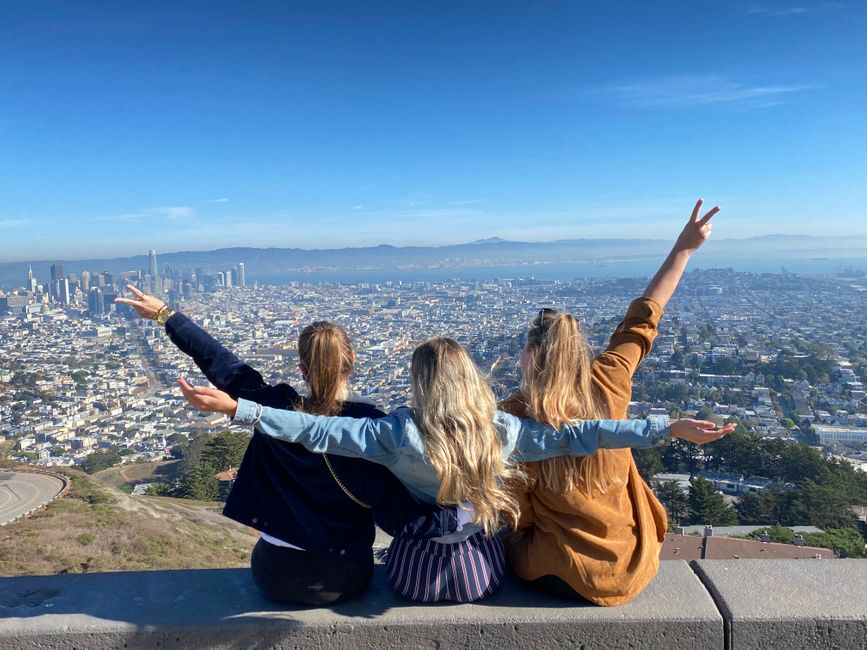
Informes de viaxes EUA
